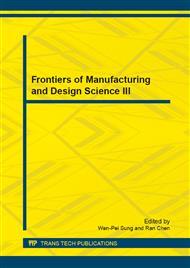p.1546
p.1552
p.1556
p.1562
p.1568
p.1573
p.1578
p.1582
p.1586
Fault Diagnosis of Condenser in Ship Steam Power System Based on Unsupervised Learning Neural Network
Abstract:
A diagnostic method is proposed for the faults of the condenser in the ship steam power system by using the unsupervised learning neural network. First, we analyzed the reasons leading to the condenser faults according to the operating features of the condenser in the steam power system. Combined with the expert knowledge, we summed up the training sample model for the fault diagnosis of the condenser. Then we adopted two types of unsupervised learning neural network to diagnose the fault of the condenser. The diagnostic method was proved to be rapid and accurate by test. Finally, we analyzed and compared the performance and the optimizing approach of the unsupervised learning neural network for fault diagnosis. The diagnostic method is of guiding significance for the safe operation of the ship steam power system.
Info:
Periodical:
Pages:
1568-1572
Citation:
Online since:
December 2012
Authors:
Price:
Сopyright:
© 2013 Trans Tech Publications Ltd. All Rights Reserved
Share:
Citation:


